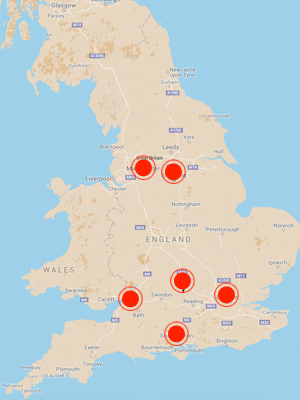New network to support Research Software Groups across the UK
Posted on 7 August 2015
New network to support Research Software Groups across the UK
 By Simon Hettrick, Deputy Director.
By Simon Hettrick, Deputy Director.
If we want research to benefit from reliable software, we need to create a home in academia for Research Software Engineers (RSEs). In the long term, this means the creation of an RSE career path, but that involves a rather heavyweight shift in the way that universities deal with staff. Fortunately, there’s also a short-term solution: create more “research software groups”. This week, leaders of these groups met to discuss how they can work together, and how they can support the formation of new research software groups across the UK.
If you manage Research Software Engineers (even if they don’t use that job title) and want to benefit from the experience and resources of similar groups, please get in touch. We are keen to include representatives from across the UK.
RSEs who work on their own tend to have a difficult relationship with their workload: there’s either too much work, or there isn’t enough to sustain their salary. By collecting RSEs into a Research Software Group, the demand for RSEs can be equalised, providing a more managed workload and an even income stream. This makes it easier to choose a career as an RSE, which means we get more RSEs working in academia - and more RSEs can only be good for research.
The purpose of the RSEL is to help leaders of research software groups share information and resources. It’s not easy setting up a new type of group in academia, so there’s plenty of room to benefit from the experience of others. By sharing resources, such as training materials and job descriptions, we can reduce duplication of effort which saves time for other work. The RSEL will use its combined experience to develop reports on issues that affect research software groups, such as determining a career path for RSEs, understanding how to finance a research software group and developing metrics that show the impact of a research software group. Notes from the meeting are available.
The RSEL will work together to lobby for reward and recognition of the RSE role, a role which will be conducted in close cooperation with the UK RSE Association.
Current members of the RSEL are listed below:
- Alun Ashton (Diamond)
- Alys Brett (Culham Centre for Fusion Energy)
- Jonathan Cooper (University of Oxford)
- Steve Crouch (Software Sustainability Institute)
- Mike Croucher (University of Sheffield)
- Mayeul d’Avezac (UCL)
- Richard Dobson (King’s College London)
- Amos Folarin (King’s College London)
- Mark Gabriel (LSE)
- Robert Haines (University of Manchester)
- James Hetherington (UCL)
- Simon Hettrick (Software Sustainability Institute)
- Richard Jackson (King’s College London)
- John Robinson (University of Southampton)
- James Spencer (Imperial)
- Mark Stillwell (Imperial)
- Susheel Varma (University of Sheffield)
- Christopher Woods (University of Bristol)
When they are announced later in the year, the EPSRC’s RSE Fellows will be invited to join the RSEL. If you are interested in joining, or simply want more information, please get in touch.

